- Home
- Douglas Clegg
The Hour Before Dark Page 16
The Hour Before Dark Read online
Page 16
It was a flight of fantasy for us. It was our family secret— we didn’t let other kids in on the Dark Game. I told Harry about it, but that was about it. Harry had been sad about his father’s illness, and I wanted to help him escape. He was the only person who I believe knew about it outside of the three of us and our father.
At some point, something broke about the game, and we all just stopped playing it.
6
“You painted something about your dream,” I told her.
She shook her head. “What do you mean?”
“In the greenhouse,” I said. “I saw your painting. The one of the dream you just told me. You, standing at the front door in the rain.”
“I didn’t paint any dreams,” she said. “And who gave you permission to snoop?”
“You left them out. In the open.”
“I did not,” Brooke said.
7
We got into the kind of argument over this (whether or not she’d left her painting out to be seen) that we’d had as kids. It almost felt good to spar a bit, and finally it ended as all our challenges had: We had to go downstairs to check it out for ourselves.
Brooke went ahead of me, key in hand.
Against my wishes, she had locked the upstairs hall door. She stood in front of me and turned the key in the lock, without apologizing for this lapse in judgment.
Then, down the backstairs in what we’d always called the sewing room (even though no one had ever sewn in it since Granny with her quilts and embroidery), through another set of doors until we came to the closest thing that could be called a hallway (five feet in length), and the door to the greenhouse.
Brooke went in, nearly as interested in the canvases as I had been. The one on the easel, and the one of our father she acknowledged.
But when she reached back to lift the third canvas, she nearly dropped it. “Shit!” she cried out. The dogs, upstairs in her bedroom, began barking at some noise. “Shit! Nemo! Is this a joke?” She turned to me, holding up the canvas.
CHAPTER NINETEEN
1
I saw the same painting I’d observed previously, a woman who looked very much like my sister, naked, her skin painted red, standing on the front porch of our house during a storm.
“It’s your dream,” I said, confused. “See? There you are on the porch.”
“Did you do this?” she asked, and I heard tears and not a small amount of rage in her voice. “Did you bring this out?”
“No,” I said.
“You did! You came back to do this kind of prank, the kinds of... of things you used to do. God, I thought you grew up! I guess I was wrong!” she spat, her rage like a gathering storm. Then she took the painting and held it up to my face as if she were going to hit me with it.
“Look at it. Look at it,” she said. “Did you do this?”
I tried to focus on the canvas, but I couldn’t. It was too close to my face.
“Brooke,” I said, my voice rising, “look, what are you so mad about? It’s your dream. You painted it. You.”
I grabbed it from her hands, and when I did, I saw a kind of uncalled-for fury on her face. I took the canvas and set it down at my side. “What the hell is going on?”
“I want to know who’s been getting into my paints and painting this kind of... obscene ..."
“Brooke, it’s you,” I said. “It’s the same kind of figures you did here.” I pointed to the one on the easel, of the faceless children.
“It’s not me!” she screamed. “I am not the one who painted that!” She pointed to the painting at my side. “How could I have? Christ, Nemo. How could I have? I did not do it!” Her shouts grew, and I had the strange feeling that something was vibrating nearby—something was shaking—I looked at her hands, clenched at her sides, trembling as she cried out.
And then, a sound as if a bomb exploded nearby.
2
The glass of the greenhouse seemed to bend slightly—I was overly tired, so I couldn’t tell if this was right—but it was as if the glass of the wall behind Brooke rippled like water with something moving through it—something that moved snakelike along the surface of glass.
“Calm down, Brooke,” I said. “Calm down, it’s all right. It’s all right.”
“I am not losing my mind! I did not imagine this! This is a trick—you’re trying to make me think I’m losing it, but I’m not!” she shouted.
“Brooke,” I reached out and took her trembling fist, and held it in my hands. “It’s all right. It’s all right. Try and relax.” I kept my eyes on the glass, for it continued its S-shaped ripples, and Brooke seemed to notice it as well—she looked up to the ceiling, the curved glass of it moving like a canopy in the breeze—just floating up slightly, and then resting back down again.
“I am ... not... losing...” she said, and then went quiet.
She nearly fell, trembling into my arms. She was hot with fever as I held her, briefly. “Oh my God, did you see it, too?” she asked.
“I’m not sure,” I said, but inside I knew this was a lie. “Yes. Yes. I saw it.”
Her voice was a whisper. “Sometimes I see it at night. Something is in here. Something’s in the house with us.”
“We’re stressed,” I said. I let her go, and she wiped her hands across her face and smoothed out her hair.
“It’s not just stress,” she said. “Dear God, Nemo, I thought I was losing it. I’ve thought so since October. But you saw it?” Tears of what might have been relief—or even gratitude—flooded her eyes and streamed down her face.
3
I went to wake up Bruno. I got a bit of a shock going into his room—he lay there, the quilt pulled back, his naked back with a yin-yang tattoo near his lower spine. Next to him, slightly overlapping leg upon leg, snoring away, was Cary Conklin, the guy who had brought me over in the boat. Bruno’s boyfriend.
I didn’t really think to react—I had only just gotten used to Bruno being gay, so seeing his boyfriend in his old bed—far too small for the two of them, so they were draped over each other—made me feel a bit the way the three bears must’ve felt upon finding Goldilocks. I didn’t want to wake Cary, so I tapped Bruno on his left foot. After a few taps, he snarfled awake and glanced back at me.
“Hey, Nemo.”
“Bruno,” I said. “Sorry to, um, wake you up so early. But something’s up.”
“Up as in ‘important’?”
I nodded.
He sighed. “Okay,” he whispered. “I’ll be down in a few.”
4
“You notice anything strange here?” I asked as soon as he bounded down the stairs, wearing a long T-shirt and red boxers. He had a harsh look in his eyes, as if he were furious for being dragged out of bed so early.
“Strange?” he asked.
“Things missing?”
Bruno shook his head.
“We were in the greenhouse a little while ago,” I said, glancing at Brooke. “Something weird happened.”
“Like?”
“Like the glass moved.”
“Moved? Broke?”
“No,” I said. “It was like ...”
“Like quicksilver,” Brooke said.
“What’s quicksilver?”
“Like liquid,” I said.
Bruno squinted and looked at Brooke. “You’ve been up all night.” Then at me. “You don’t exactly look all there, either.”
“We saw it, tired or not,” I said.
“Did you ask her?” Bruno turned to me.
“Ask me what?” Brooke raised an eyebrow at me,
“No,” I replied. Then to her, “You walk up and down the house all night long.”
“I know,” she said.
“Why?” Bruno chirped.
“Why do you think? Our father was murdered. I can’t sleep.”
“No,” Bruno said. He pointed a finger at her. “You were doing it before Dad died.”
“No I wasn’t.”
Bruno half-grinned. “Come
on. I saw you. I’d wake up and see you in my room. Just walking.”
“I’m telling you,” she said. She shot a glance at me. “I wasn’t.”
“You sure?”
“I don’t lie,” she said.
Bruno let out what I can only describe as a repressed breath, through his nostrils.
“I don’t,” she repeated.
“So the bathtub story is accurate,” he said. “You fell asleep. You weren’t trying to—”
“God!” Brooke closed her eyes. “God, I’m going to have a headache.”
“Doesn’t matter,” I said to him. “I was there, too. I saw it. It was this rippling ... thing.”
“What time?”
I shrugged. “Six, maybe.”
“Well,” he said, spreading his hands out as if this solved everything. “No sleep, the light barely up outside. And you—” he nodded to Brooke. “Miss Xanax.”
“I haven’t taken one since the day after Dad was killed.”
I closed my eyes, trying to figure out how this all could be. How could I have seen the same thing Brooke had seen: the glass of the greenhouse moving. “What about the painting?” I asked Brooke.
“I didn’t paint it,” she insisted.
“You did,” I said. “It’s the same as the others. And it’s exactly what the dream was. The one you told me about."
"Let’s not get into this again. Maybe we didn’t see anything on the glass.”
“Wait,” I said. “You saw something on the glass?”
“You did, too,” she said.
“No, I saw it move—like it was rippling or... I don’t know... that’s not what it was like ... it was like it was blurring or something.”
“I saw a woman’s face,” she said.
5
“Bruno’s right. I’m exhausted,” she added. “I’ve been up all night. It was a hallucination. You didn’t see it?”
“I saw movement on the glass,”
“Could’ve been clouds overhead,” Bruno said. “It’s foggy. In the greenhouse, it makes the walls look different.”
“Who was it you saw in the glass?” I kept my gaze on my sister.
“Just a woman,” Brooke said.
I watched her face—my beautiful, smart sister. The stress of what had happened had no doubt scrambled her mind a bit. Who wouldn’t be a little shaken, a little traumatized, by finding her father dead, butchered? Bathed in blood. How could she not? How could she sleep? How could she function? That she could even speak to us about any of this was a bit of a miracle in and of itself.
“You need rest,” I said. “We all do. And I think it’s time we get some professional help.”
“No shrinks,” she said sharply.
“Then Dr. Connelly. Just a check up. We can all use one.” I turned to Bruno for support.
“Sure,” Bruno said.
“I guess I should talk to someone,” Brooke said finally, a note of defeat in her voice. “And I can’t exactly go to Father Ronnie anymore for counsel.”
“Not since Dad told him to fuck off,” Bruno said.
6
Bruno insisted on going to the greenhouse immediately after Brooke went back up to bed.
“I saw it, Bruno,” I said. “The wall.” I went over to the panes of glass and touched lightly against one of them. Tapped it. “It was as if it were made out of gel or something and just moved.”
“How many hours of sleep did you get?”
“Five.”
“You need to go back to bed, too,” he said.
7
I went back to bed and woke up around one in the afternoon. The greenhouse seemed just as it had before. I sat in it, sipping my coffee, for a good half hour, wondering if I’d get that sensation again. The glass turning to rippling water. But it didn’t. Wide awake, with the day well under way, I realized that perhaps I had, after all, been half asleep when Brooke and I had gone there at daybreak. Bruno, I figured, had been at least partially right. There had been a light fog that didn’t bum off ‘til three, and that might’ve accounted for at least some of what I’d seen—accompanied by my lack of sleep and my sister’s rage. I went looking for the picture again, but it was gone. I assumed Brooke had taken it and put it somewhere else. I called Dr. Connelly’s office and tried to schedule my sister in—even though it was a week or so ‘til Christmas, his assistant knew, as the current local tragic celebrities, we might be able to cut in line. Called Pola, and wanted love to take me away from my fears about my sister.
8
And I thought about my father. He was never away from my mind. I thought about his face. His hands. His way of speaking that was a gentle twist of Yankee islander.
And I wondered why I had never really gotten along with him.
9
Got a strange phone call late one night. About two A.M.
When I picked it up, it was Paulette Doone. “You demons,” she said. “You did it. You did it”
Then she hung up on me. I fell back to sleep, not really knowing what had possessed her.
In the morning I got a call from Joe, and he told me Ike Doone had shot himself in some cockamamie illegal hunting accident going after some wild turkeys he’d flushed out, and Paulette had begun telling everyone in the village, almost immediately, that the “Raglan curse” was upon them and that the Devil was all around our house.
Ike was not dead, just had a helluva wound on his left thigh.
“Try and ignore this kind of stuff,” Joe said.
10
Pola and I went to dinner, for long walks—but my mind was too much on a murder and on my family.
Then, just before the weekend, Harry Withers found me.
CHAPTER TWENTY
1
The day was sunny and bright, and even though another snow had fallen recently, it felt warmer outside with the yellow sun and clear blue sky. When the winter’s gray as in New England, you’ve got to get outdoors on those days that the sun finally shines.
On a dog’s ass.
Stepping out the door, I was greeted with the bounding leaps and nips at my elbows of Madoc, the greyhound that seemed more like a skinny horse than a dog. He followed me a ways, and then, after a quarter mile or so, ran back for the house and his companion, Mab, who was barking down by the duck pond.
I wanted to enjoy a good walk on a lone country road.
Just as I was setting off, Harry Withers showed up.
2
Harry was impossibly dressed in a broad-brimmed hat and a duster jacket, and his square glasses, and a flop of thick brown hair nearly over his eyes. I laughed when I saw him.
“You look like the sheriff of Sagebrush,” I said.
“I know, I know,” Harry said. “Ridiculous, isn’t it? I thought I looked like an Italian prelate.”
“You found me.”
“I gave you a little time,” he said, somewhat sheepishly. “I heard you were in the pubs with Bruno, but I didn’t come looking. Out of respect.”
“Thanks,” I said.
“Want to walk a bit?”
3
He hadn’t changed much in the years since I’d been gone. He looked as if he were eighteen still, but with a bit of a paunch. His eyes had the kind of brightness to them that only someone who loves his life seems to have. His crooked smile was disarming, but painful for me to remember. It was some kind of muscle problem that he’d had since an accident when he was a baby.
He smiled at the worst times—always had.
His smile was some kind of permanent scar on his face. Happy or sad, he smiled. He told me he couldn’t help it. “They believe,” he said, referring to the police, “that the killer must have escaped right after the murder.” He paused and added, “Is this going to upset you, hearing about it?”
“Not as much as it should.”
He went off the road and bent down in the snow, practically squatting. He drew up a longish thick branch that had come down in the storm, broke off the weak branches’ from it,
and said, “Instant walking stick.” He took it with him and used it as a pointer.
“Over there, from the woods. That’s what they think. Then, from there, to the harbor. Their own boat.”
“Could be,” I said.
Harry’s smile intensified. Then it dropped to a straight line on his face. “I don’t think so. In fact, it’s basically not possible, but try telling that to Joe Grogan. First, I doubt one man did this. I suspect there were a few. And second, getting off the island during a Nor’easter is suicide. If they got in a boat that night, particularly some little motorboat, they’d have been lucky if they made it to the Vineyard. They’re still here.”
“Interesting,” I said.
Harry pointed at the smokehouse, which lay back toward the house itself. He seemed about to say something, but stopped himself. Then he held the stick parallel to the ground and pressed it down. “They probably didn’t tell you about the footprints.”
“The killer’s?”
“They’ve kept things quiet. Joe Grogan’s seen to that. All the mainlander investigators have combed and questioned and pretty much turned over every rock. They even hauled Carson’s butt in for questioning, and the poor guy could only weep and tell them that he thought he saw a demon that night. They almost took him away. If Joe hadn’t stepped in, Carson McKinley would probably be in some state hospital in Boston getting drugged up every time he thought of sheep. Everyone on the island is scared.”

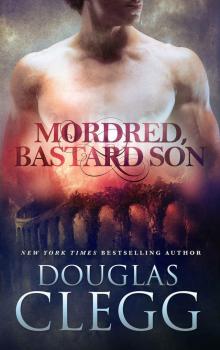 Mordred, Bastard Son
Mordred, Bastard Son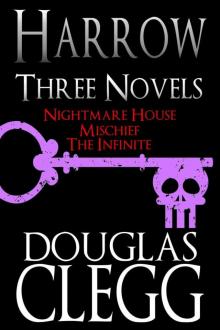 Harrow: Three Novels (Nightmare House, Mischief, The Infinite)
Harrow: Three Novels (Nightmare House, Mischief, The Infinite)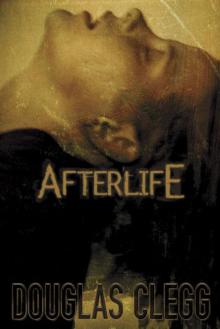 Afterlife
Afterlife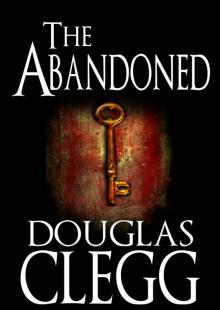 The Abandoned - A Horror Novel (Thriller, Supernatural), #4 of Harrow (The Harrow Haunting Series)
The Abandoned - A Horror Novel (Thriller, Supernatural), #4 of Harrow (The Harrow Haunting Series)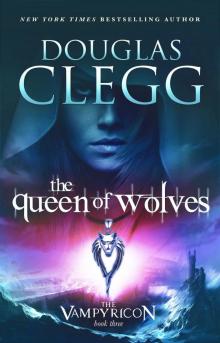 The Queen of Wolves
The Queen of Wolves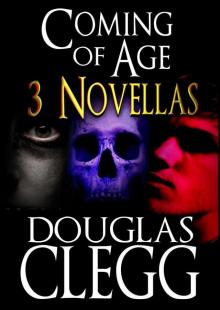 Coming of Age: Three Novellas (Dark Suspense, Gothic Thriller, Supernatural Horror)
Coming of Age: Three Novellas (Dark Suspense, Gothic Thriller, Supernatural Horror)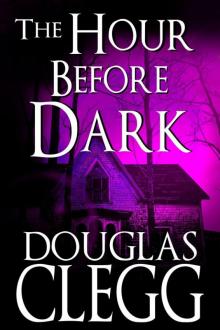 The Hour Before Dark
The Hour Before Dark Isis
Isis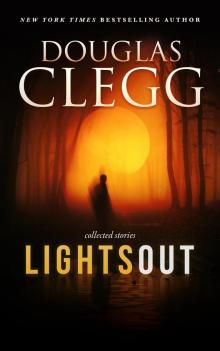 Lights Out
Lights Out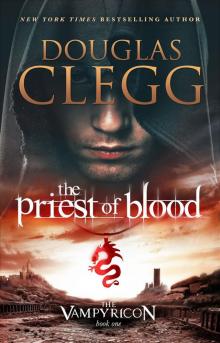 The Priest of Blood
The Priest of Blood Criminally Insane: The Series (Bad Karma, Red Angel, Night Cage Omnibus) (The Criminally Insane Series)
Criminally Insane: The Series (Bad Karma, Red Angel, Night Cage Omnibus) (The Criminally Insane Series) Halloween Candy
Halloween Candy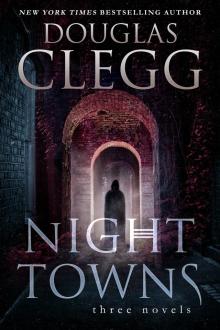 Nights Towns: Three Novels, a Box Set
Nights Towns: Three Novels, a Box Set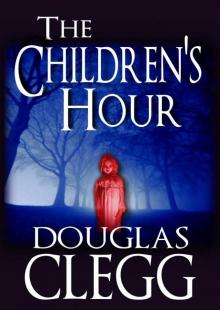 The Children's Hour - A Novel of Horror (Vampires, Supernatural Thriller)
The Children's Hour - A Novel of Horror (Vampires, Supernatural Thriller)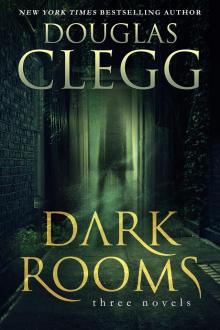 Dark Rooms: Three Novels
Dark Rooms: Three Novels![[Criminally Insane 01.0] Bad Karma Read online](http://i1.bookreadfree.com/i2/04/10/criminally_insane_01_0_bad_karma_preview.jpg) [Criminally Insane 01.0] Bad Karma
[Criminally Insane 01.0] Bad Karma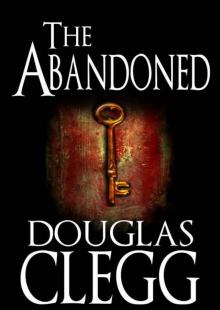 The Abandoned - A Horror Novel (Horror, Thriller, Supernatural) (The Harrow Haunting Series)
The Abandoned - A Horror Novel (Horror, Thriller, Supernatural) (The Harrow Haunting Series)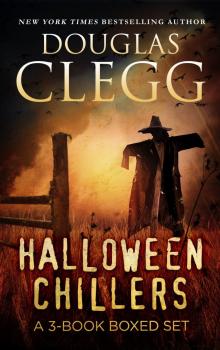 Halloween Chillers: A Box Set of Three Books of Horror & Suspense
Halloween Chillers: A Box Set of Three Books of Horror & Suspense